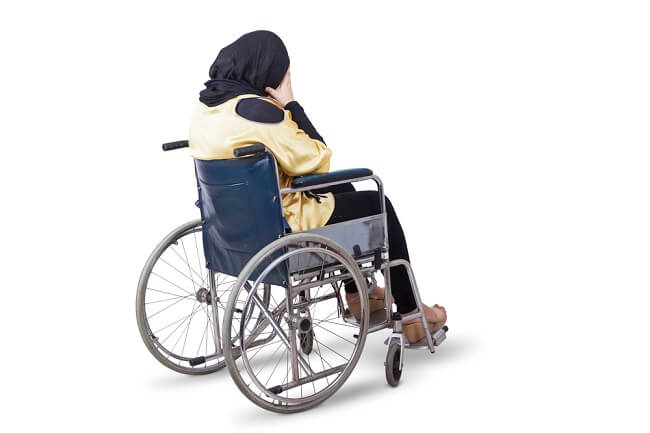Children with autism need extra attention and support from their parents. Therefore, it is important to know how to accompany children with autism so that they can support their growth and development and help them move more independently.
The way to accompany a child with autism is certainly different from other children who do not have a similar condition. This is because autism makes it difficult for children to communicate and show their emotions to others.

Therefore, parents need to know how to care for and assist children with autism to support their growth and development and build social interactions with other people.
Autism Disorder at a Glance
Autism, also known as autism spectrum disorder (autism spectrum disorder) is a developmental disorder that makes it difficult for sufferers to communicate and interact with other people. This condition is thought to occur due to several factors, namely genetic disorders and disorders of the brain.
The limited ability to communicate makes children with autism unable to express the desires and emotions that are being felt, both verbally and through body language. However, children with this condition may be good at other skills, such as art, music, and math.
Autism conditions can be overcome by improving the ability of children as a whole. Thus, it is important for parents to collect, study, and understand autism-related information.
Some Symptoms of Autism Disorder in Children
Symptoms of autism can generally be seen since the child is 3 years old. However, there are also those who show symptoms since the child was born. Some of the symptoms shown by children with autism are:
- Avoid eye contact and rarely show facial expressions
- Perform repetitive movements, such as repeating words and swinging the body back and forth
- Avoiding or refusing physical contact with other people
- Speaks in an unusual tone, for example flat like a robot
- Doesn't respond when his name is called, even though his hearing ability is normal
- Don't want to share, talk, or play with other people
- Have no interest in playing with other children
- Unable to start or continue a conversation, even just to ask for something
- Happy to be alone is like having a world of its own
The earlier autism is treated, the more effective the treatment will be. Therefore, it is very important for parents to be aware of the symptoms experienced by children with autism.
How to Educate and Guide Children with Autism
If your little one has been diagnosed with autism, Mom and Dad need to find as much information as possible about autism through trusted health sites or consult with a pediatrician or child psychiatrist regarding how to accompany and accompany a child with autism.
Until now, there is no drug that can cure autism. However, children with autism can get treatment to support their growth and development and support their learning process.
Efforts to educate and guide children with autism are also important to practice social skills, communication, and behavior, so that they can adapt better to the surrounding environment.
Therefore, it is important for every parent who has a child with autism to regularly consult a doctor to find ways to educate and guide children with autism according to their needs.
Children with autism can often respond to structured educational programs such as those at school. There are various choices of schools that Father and Mother can choose to support their education, such as homeschool, special schools (SLB), and inclusive schools.
The Importance of Support from Family and People Around for Children with Autism
The support of family members and people around is very important for the growth and development of children with autism. This can be done by inviting him to play and interact regularly every day.
In addition, there are several things that family members can do at home in interacting with children with autism, including:
- Understand the gestures or cues of a child with autism when he or she points or wants something.
- Avoid showing rude behavior in front of a child with autism.
- Implement a structured activity schedule to help your child transition from one activity to another on a regular basis.
- Allow children to still have the opportunity to be alone, but with supervision.
Treatment for Children with Autism
Until now, autism disorder can not be cured. However, there are several treatment options or therapies that can be done to help children with autism learn and carry out daily activities independently.
The following are some treatments that can be done for children with autism:
Administration of drugs
Doctors can give drugs, such as antidepressants, stimulants, or antipsychotic drugs to reduce symptoms of autism, such as hyperactivity, difficulty concentrating, or frequent tantrums.
Monitoring and stimulation of growth and development
How to monitor and stimulate the growth and development of children with autism is certainly different from children who do not have the same condition. Therefore, parents of children with autism need to consult with doctors about various ways to support their child's growth and development.
This method can be done in various ways, such as play therapy, drawing, or playing music.
Psychotherapy
Cognitive behavioral therapy or CBT (cognitive behavioral therapy) aims to train the way of thinking or cognitive function and how to act children with autism.
This therapy aims to train children with autism to be able to interact with their surroundings and perform various activities independently.
In addition, there are other therapeutic options that can also be used to stimulate the growth and development of children with autism, namely speech and occupational therapy.
Educating and assisting children with autism requires more patience and correct knowledge about this condition. Therefore, don't hesitate to consult a doctor or psychiatrist to monitor your little one's development and get the right advice.









